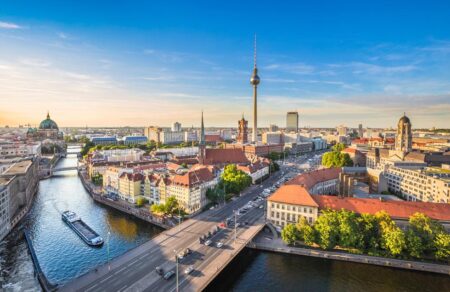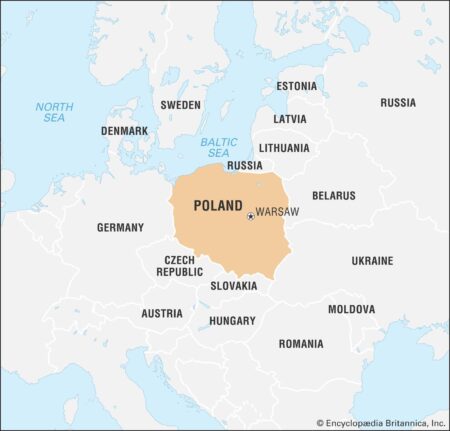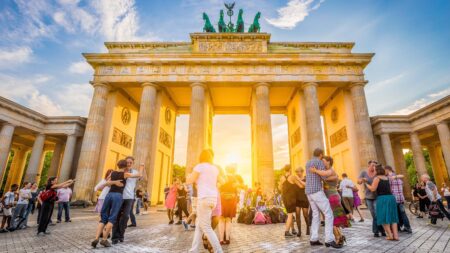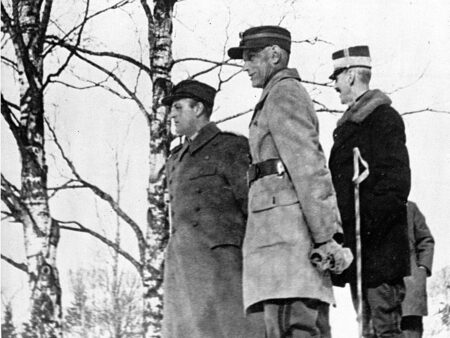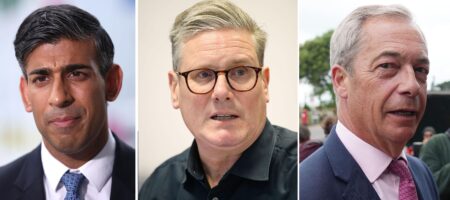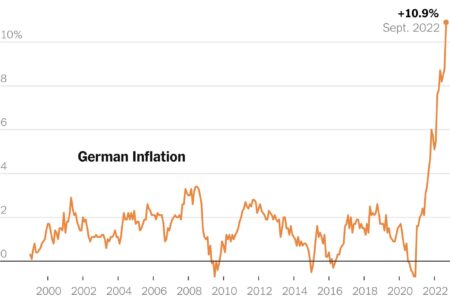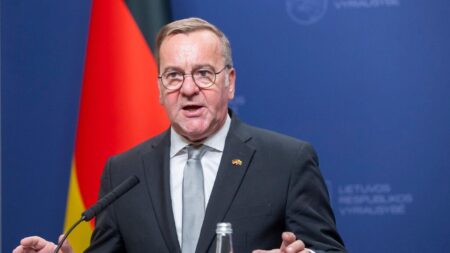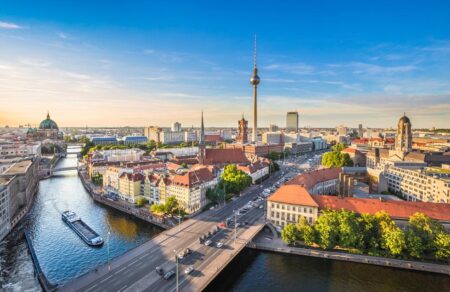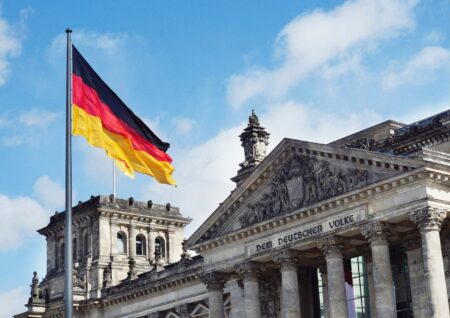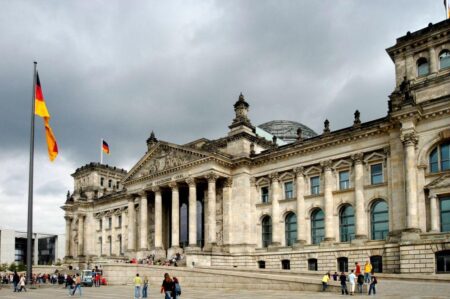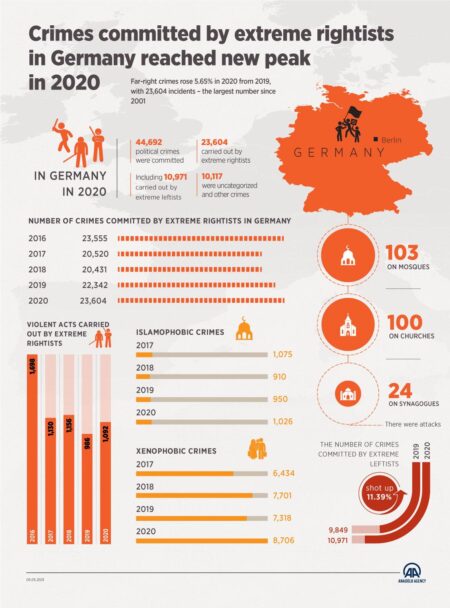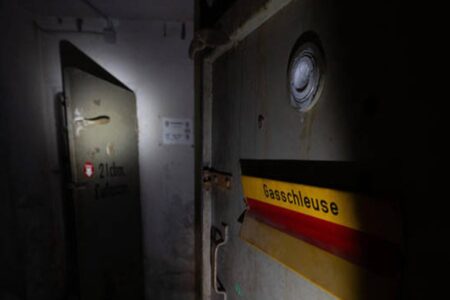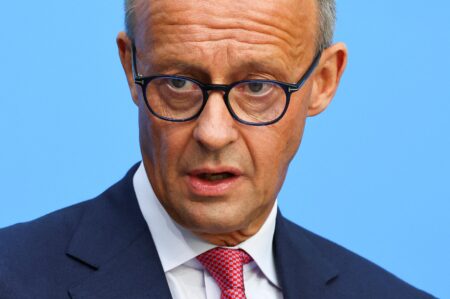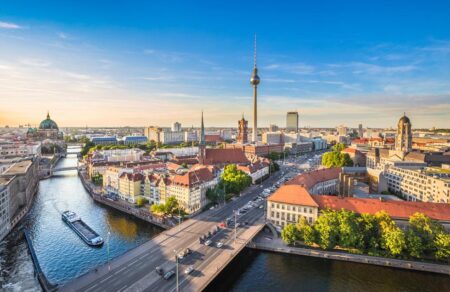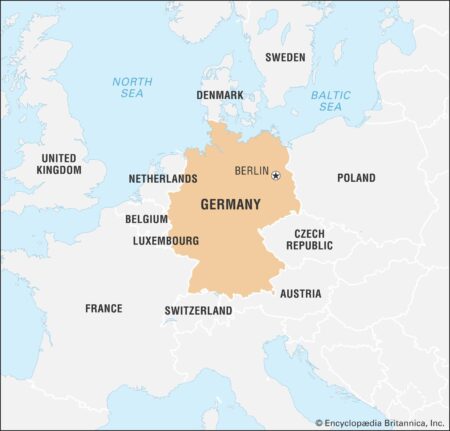Germany is gearing up to launch a multibillion-euro investment blitz aimed at revolutionizing its railway network. This ambitious government plan focuses on expanding and modernizing rail infrastructure, paving the way for faster, greener, and more efficient travel across the country
Browsing: Germany
Poland is “very likely” to reinstate border controls with Germany, officials reveal, as part of a bold move to manage the rising flow of migrants. This measure aims to curb cross-border migration and strengthen security along the frontier
Germany dealt a stunning blow to England’s Luke Littler and Luke Humphries, top favorites who were shockingly knocked out of the 2025 World Cup of Darts. This unexpected upset has sent shockwaves through the tournament, shaking up the competition right from the opening rounds
In a peaceful German town, a dedicated local reporter uncovers powerful stories that reveal the heart of sweeping social and political changes. The New York Times highlights how small-town journalism provides an intimate glimpse into the nation’s evolving landscape
Luke Humphries and Luke Littler have been warned that a royal welcome is far from guaranteed as they prepare to face off in Germany, GB News reports. With the pressure building, both players find themselves in the spotlight ahead of this electrifying showdown
The new electric sportbike just launched in Germany is capturing attention with its bold design and exhilarating performance. As it gears up to enter the US market, excitement is building-could this be the revolutionary ride that takes on the iconic gasoline-powered legends?
On this day in 1940, Norway faced a dramatic turning point in World War II by officially surrendering to Nazi Germany. This pivotal moment signaled a major victory for German forces as they took control of the strategically crucial Norwegian territory amid the fierce Battle of Norway
Leaders of the UK, France, and Germany are urgently appealing for peace in the Middle East, calling on all parties to choose diplomacy over conflict and break the relentless cycle of violence, reports kfgo.com
Germany’s inflation rate held firm at 2.1% in May, reflecting steady consumer prices amid ongoing economic challenges. This encouraging data sparks cautious optimism for Europe’s largest economy. (NYSEARCA:EWG)
German Defence Minister visits Ukraine to ramp up weapons support amid the ongoing conflict. Talks focus on expanding military aid as Kyiv urgently calls for increased assistance to repel Russian advances, Reuters reports
Germany, under the dynamic leadership of Friedrich Merz, is boldly pushing forward with its controversial funding of political NGOs, igniting fierce debates about state influence and the fragile balance of political neutrality throughout Europe
Germany is swiftly fast-tracking its departure from Russian gas, dramatically increasing LNG imports and pouring investments into cutting-edge terminals and infrastructure. This bold move is designed to guarantee energy independence in the face of escalating geopolitical tensions, signaling a powerful shift that could redefine Europe’s energy landscape forever
Germany has firmly stood by Denmark amid former President Trump’s claims on Greenland. German politician Friedrich Merz emphasized the vital importance of respecting Denmark’s sovereignty and preserving peace in the region
Germany and Denmark have joined forces, pledging a strong and united stance on immigration. Together, they are championing tougher controls and deeper cooperation to better manage migrant flows and enhance border security-signaling a bold move toward more coordinated migration policies across Europe
Germany’s Friedrich Merz stepped away from former President Donald Trump’s event unscathed and radiating confidence. The CDU leader dismissed any concerns, calling the gathering nothing more than a “show” and emphasizing a powerful sense of political stability on the horizon
Germany has witnessed a dramatic 46% spike in far-right crimes, official data reveals. This alarming rise highlights growing concerns about extremist violence and the urgent need for more robust preventive measures
Germany is rapidly accelerating the construction of bomb shelters amid growing fears of a potential Russian attack. Officials emphasize enhanced civilian protection efforts as tensions escalate across Eastern Europe
A German leader delivers compelling reflections from D-Day, calling on former President Trump to champion unity and strength in the face of today’s deep divisions-an urgent message highlighted in a recent Atlantic Council analysis
Germany fell 0-2 to France in the Nations League playoff, as Kylian Mbappe mesmerized fans with his dazzling skill and Mike Maignan delivered crucial, game-changing saves. Their outstanding performances propelled France to a vital triumph
Germany’s Finance Minister Christian Lindner has pledged to strengthen ties with the White House on trade issues, paving the way for a robust transatlantic economic alliance, Reuters reported

